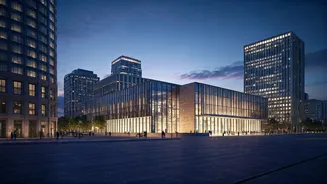Mayors: Power Dynamics
The discussion about whether Indian cities could have strong mayors touches upon a number of complex issues. One key point is that the current status of mayoral
power is not the same across all municipalities. There is a great deal of variation in the level of authority that mayors are granted. Certain state governments hold the ultimate decision-making power, which in turn influences the degree of autonomy given to the mayors. This dynamic poses a significant barrier. Mayors usually find themselves in a position where their actions are heavily reliant on the state's approvals and financial support. These constraints, along with a lack of administrative and financial control, often limit the effectiveness of the mayoral office, creating a situation where mayors are constrained, and urban development suffers.
Challenges & Obstacles
Several factors impede the development of strong mayoral systems in India. One major issue is the historical and political context. The structure of urban governance has been influenced by various models, creating a fragmented landscape where the lines of authority are frequently blurred. This fragmentation of power leads to problems. There is often a lot of competition among various administrative bodies. Additionally, bureaucratic inertia and resistance to change make it challenging to implement reforms. The entrenched interests of various stakeholders, including politicians, bureaucrats, and contractors, often hinder the transition towards a more powerful mayoral system. These people would lose some of the power that they have now, resulting in resistance to such changes.
Looking Ahead: Prospects
The likelihood of Indian cities adopting strong mayor systems remains uncertain. While the concept has merits, the practical realization is complicated by several roadblocks. The political climate plays a huge part in it. The ruling parties at the state and local levels shape reforms and policies, and the political will to give more power to mayors varies widely. Moreover, public awareness and support are essential. This is an important consideration as citizens need to be informed of the benefits of a strong mayor system, so as to increase demand for more effective urban governance. The future of strong mayors in Indian cities hinges on these variables, making it a topic of ongoing debate.




















